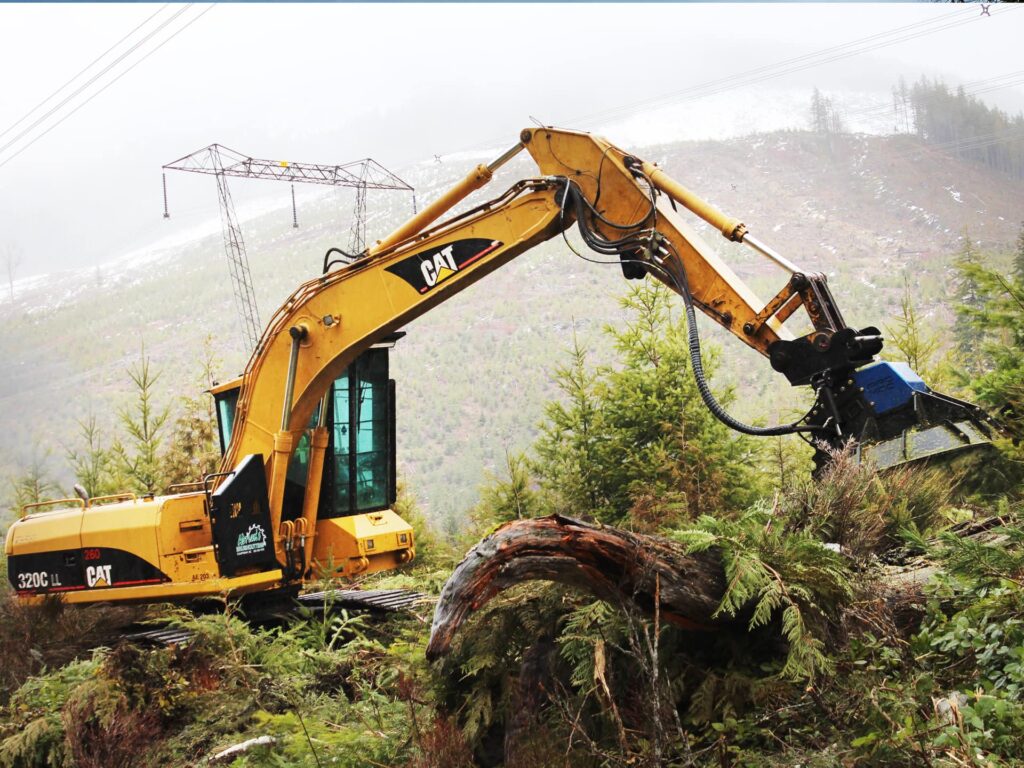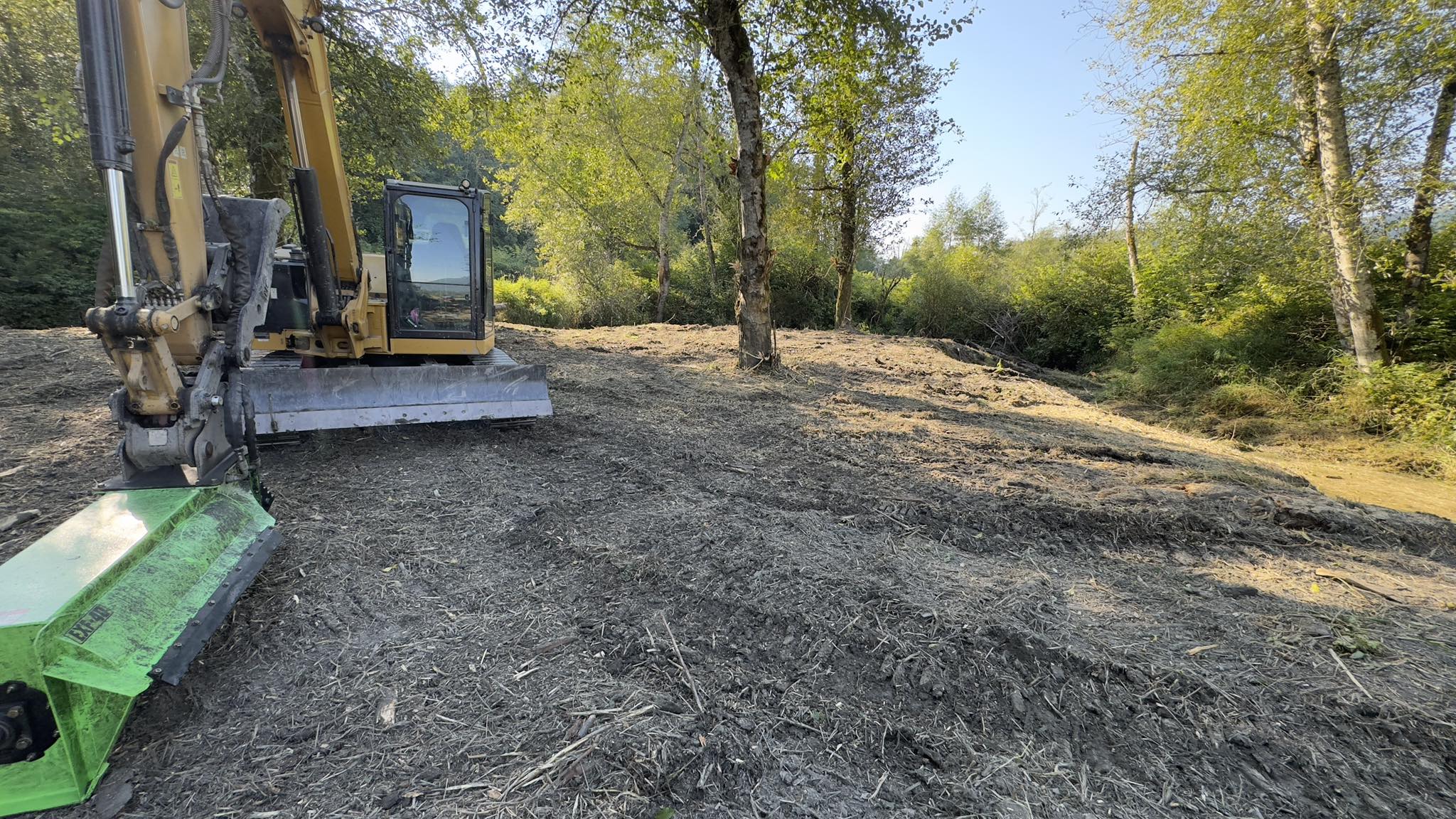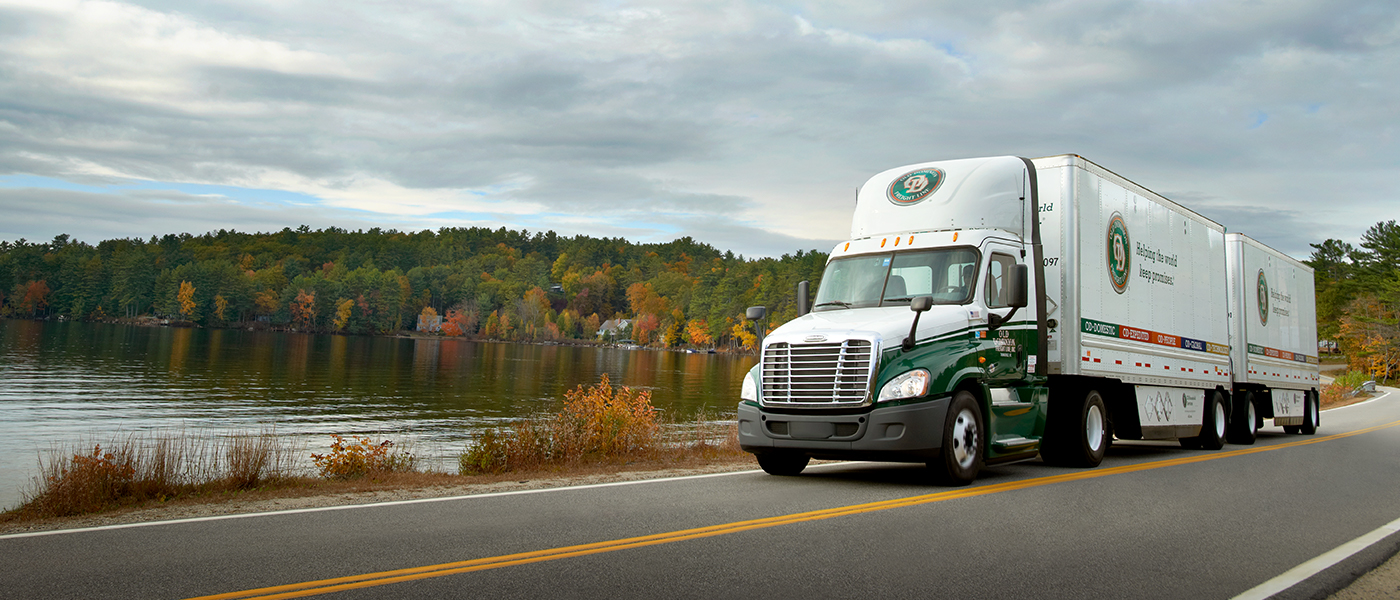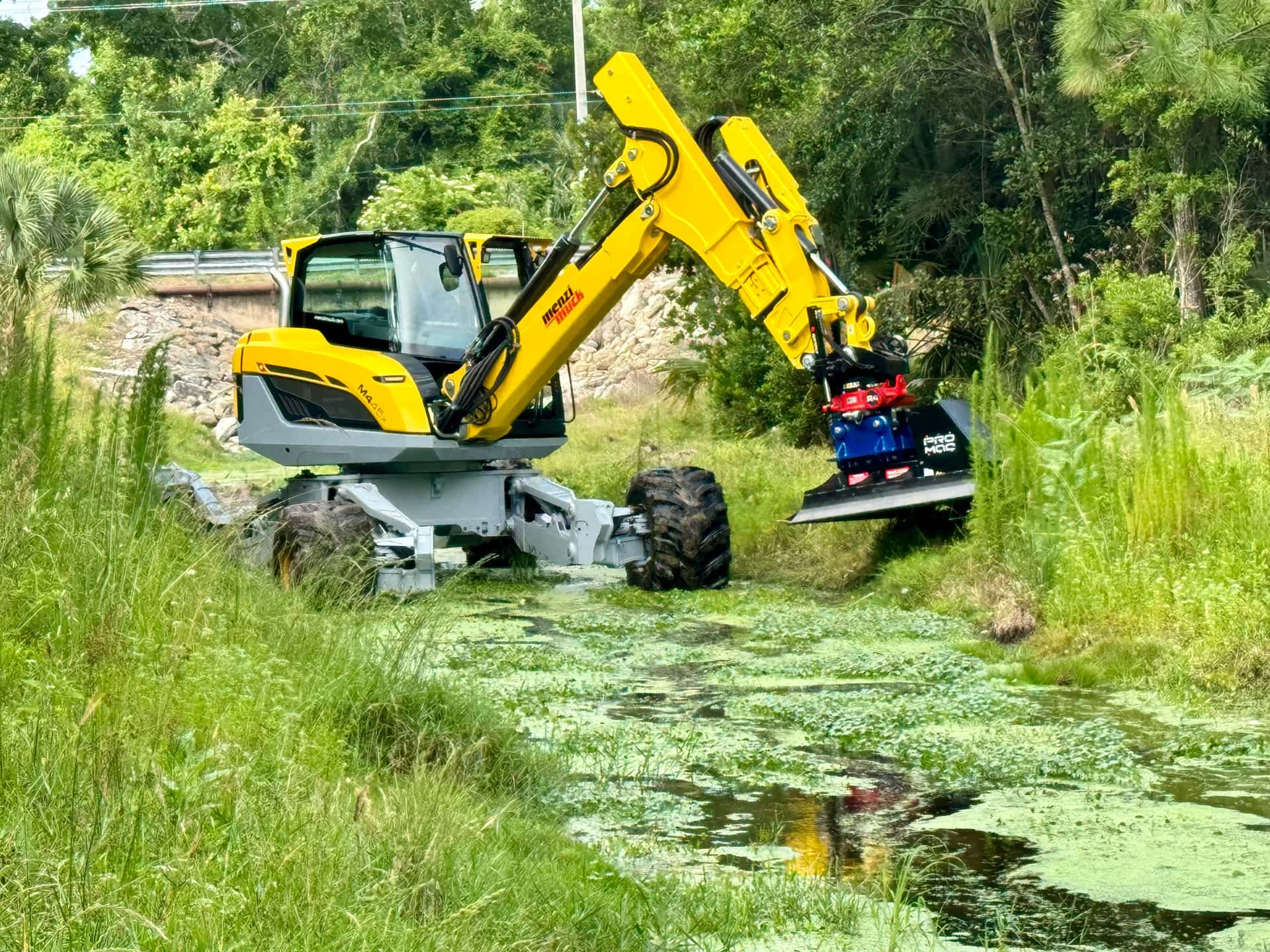After years of talking about mowers with thousands of operators, contractors, and landowners, we’ve realized that mowers exist on a spectrum. On one end, you have flail mowers: precise and clean-cutting tools made for grass and lighter vegetation. In the center sits the rotary mower, the reliable workhorse that does a little bit of everything. And on the far end are the mulchers or mastication cutters, the heavy hitters designed to take down dense material and leave nothing but mulch behind.
At Forge Attachments, we sell all three types, the full spectrum, because no single mower fits every job. Each has a specific purpose, and knowing which one fits your work can save hours of frustration and thousands of dollars in wear and tear.
Flail Mowers – Clean Finish, Controlled Cutting
Flail mowers are for the finer work. Their horizontally mounted drums, lined with knives or hammers, slice through grass, weeds, and light brush with precision. The result is a clean, even cut that’s perfect for roadsides, pastures, ditches, and field maintenance.
Because the cutting action is enclosed, flails are also much safer around rocks, fences, or in populated areas — far less likely to throw debris. For operators who care about cut quality and control, flails are the go-to tool.
But they’re not invincible. When you push them into dense, woody material, they’ll bog down quickly and their knives wear fast. They’re designed to slice, not smash. Flails are at their best in grass, small trees and light brush, not full-on land clearing.
Watch a Reaper flail mower in action!
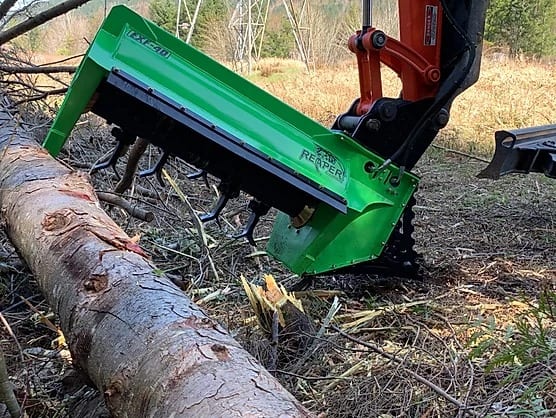
Rotary Mowers – The Middle Ground
The rotary mower sits squarely in the middle of the three— the jack of all trades. Using large, swinging blades under a steel deck, rotary mowers rely on torque and momentum to cut through grass, brush, and saplings. They aren’t as smooth as a flail mower, or as aggressive as a mulcher, but they’ll take on nearly any job with power and dependability.
That’s what makes them the most versatile option for landowners and contractors who face changing terrain and vegetation. Rotary mowers can maintain open pastures one day, and tackle regrowth or tall brush the next.
Rotary mowers are also cost-effective, and easier to maintain than a mulcher. Their simplicity makes them a dependable, all-purpose attachment for anyone who needs versatility over specialization.
Watch a Reaper rotary mower in action!
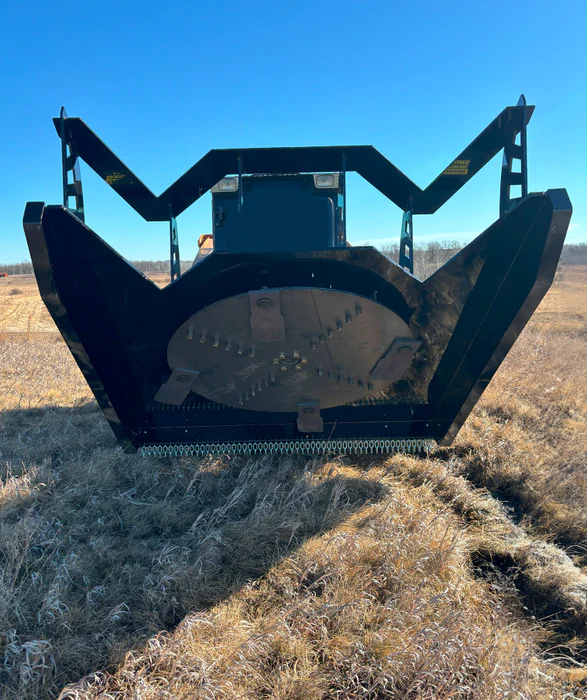
Mulching / Mastication Cutters – The Power End
On the far right of the range are mulchers, also known as mastication cutters. These are designed for serious land-clearing jobs where you need to grind dense brush, saplings, and trees into mulch.
A mulcher’s arbor, lined with carbide or steel teeth, shreds material down to mulch in a single pass. They’re built for power and production—perfect for forestry work, right-of-way clearing, and site prep. The result is fast, clean, and efficient ground reclamation.
However, that power has trade-offs. Mulchers don’t perform well in grassy or stringy vegetation, which can wrap around the arbor, and hitting rocks or metal can cause expensive damage to mulching teeth.
Mulchers belong in heavy material, not in fine mowing work. Used properly, though, a mulcher can clear acres in a day and leave the ground looking like it’s been landscaped.
See a Promac Equipment mulcher in action!
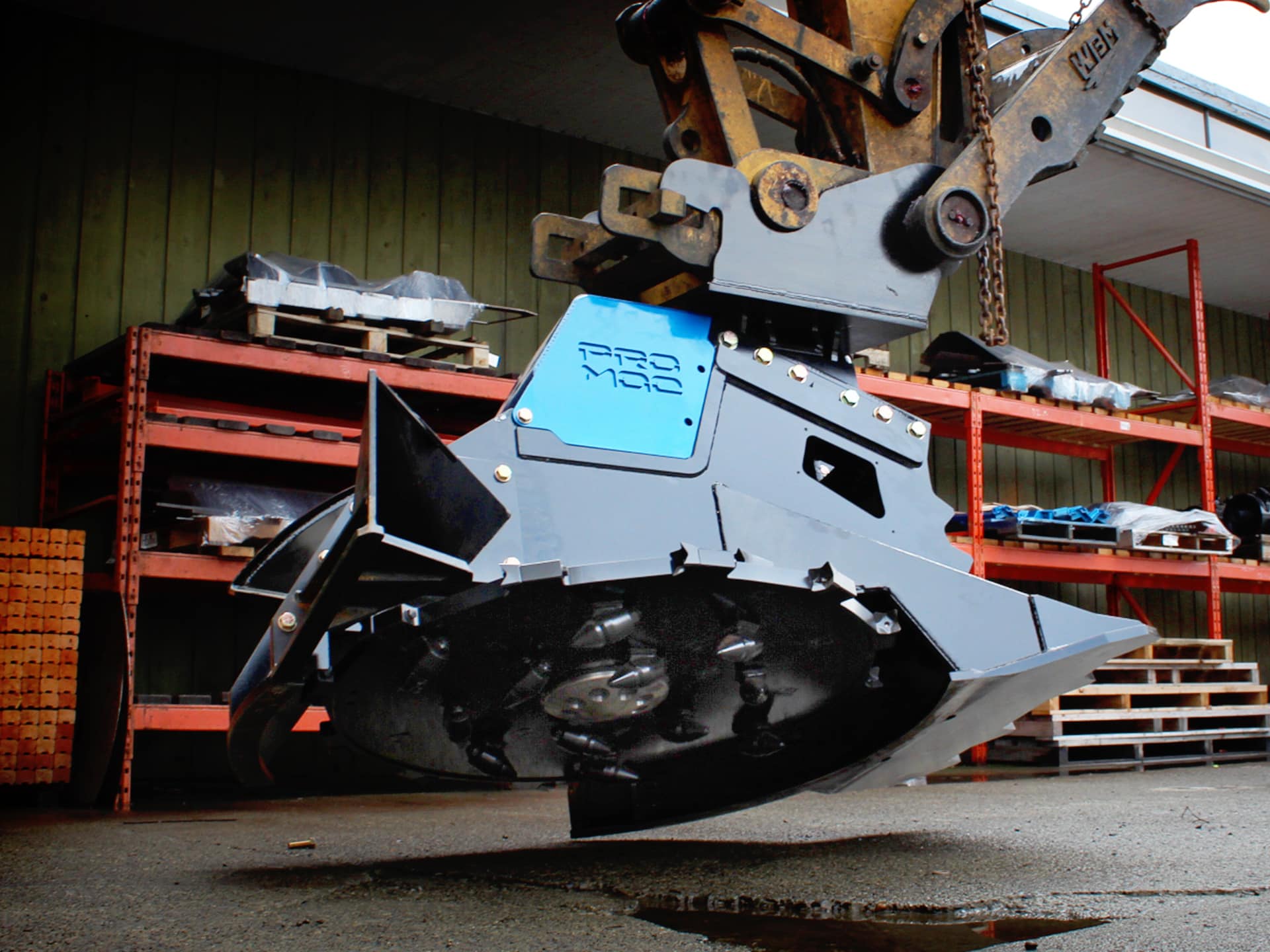
The Mowing Range
When you line all three types up side by side, the pattern becomes clear:
| Type | Best For | Weakness |
|---|---|---|
| Flail Mower | Grass, weeds, and light brush | Bog down in heavy material; higher blade wear |
| Rotary Mower | Mixed grass and brush; general use | Average cut quality; not specialized |
| Mulcher / Mastication Cutter | Dense brush, saplings, and land clearing | Poor performance in grass; higher maintenance cost |
Most professionals eventually own more than one. A flail for finish work, a rotary for daily maintenance, and a mulcher for clearing and reclamation. Each has its place, and knowing which one fits your operation makes all the difference.
Final Thoughts
Choosing the right mower isn’t just about horsepower or hydraulic flow–it’s about making sure you’ve got the right tool for the work you need to get done.
If you’re maintaining pastures, fields, or roadsides, a flail mower will give you the cleanest, safest cut.
If you need one attachment that can handle just about everything, a rotary mower will keep you productive across changing conditions.
And if you’re reclaiming overgrown land or doing forestry work, nothing compares to the power of a mulcher.
At Forge Attachments, we’ve tested all three – not just to sell them, but because we know every operator has a different challenge. Over the years, one thing has proven to be true: when your mower matches your material, you stop fighting your equipment, and start letting it work for you.
